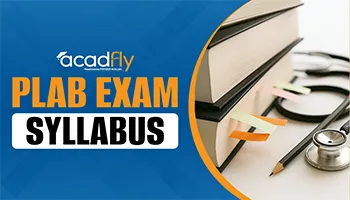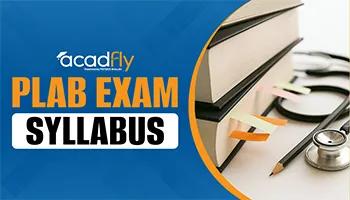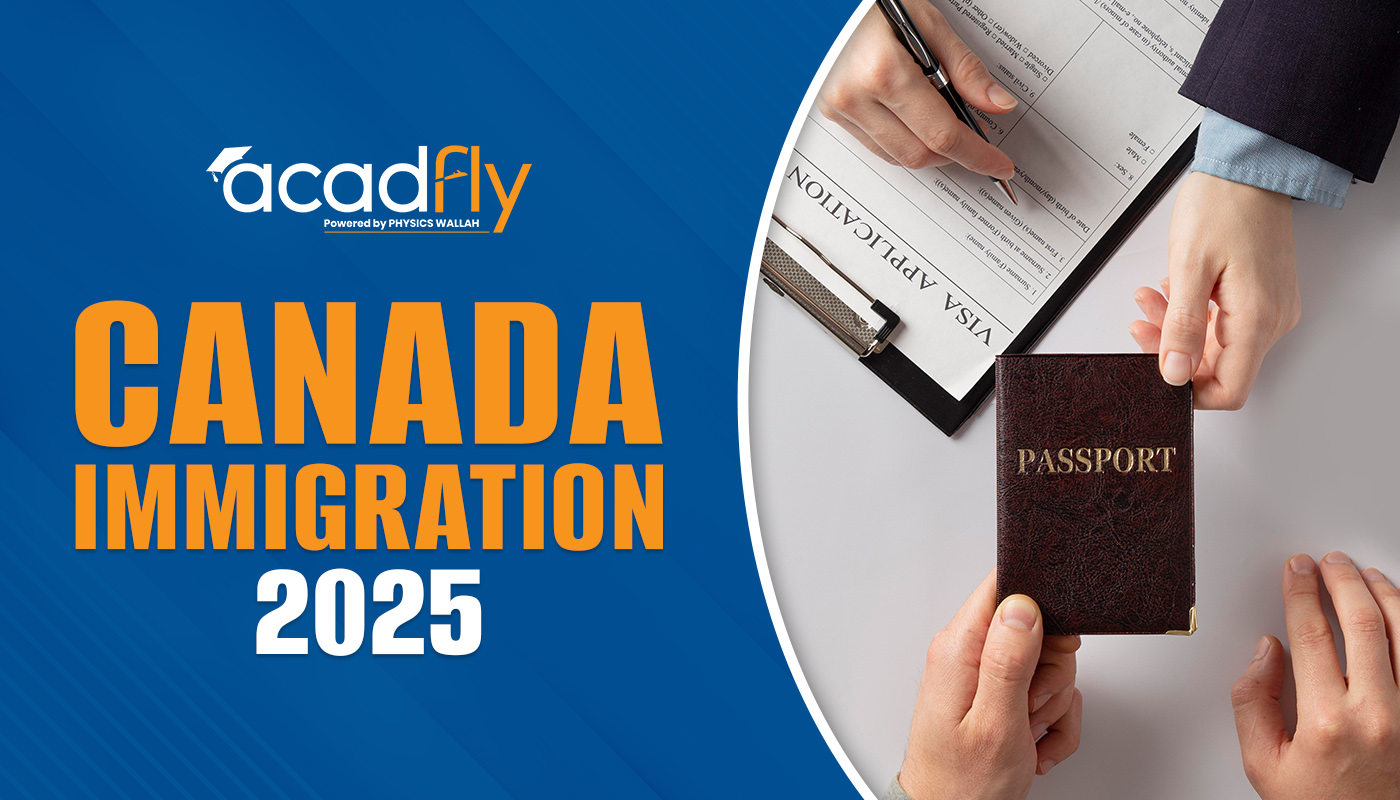


PLAB Exam Syllabus 2025: The PLAB exam, conducted by the General Medical Council (GMC), UK, is a two-part exam meant mainly for international medical graduates (IMGs) wishing to work in the UK. The IMGs should ascertain that they are equivalent to a doctor trained in the UK who is just commencing Foundation Year 2 (F2) in the medical system.
Thus, if you have your undergraduate medical degree from a school outside the UK, EEA or Switzerland, you are supposed to take the PLAB exam to register and work as a doctor in the UK.
PLAB Exam Syllabus 2025
The PLAB is for international medical graduates wishing to practice medicine in the UK. It is a thorough assessment that ensures these doctors have acquired the requisite medical knowledge, clinical skills, and professionalism necessary for caring for patients within the NHS. It is primarily sectionalized into PLAB 1-theory and PLAB 2-practical OSCE all things being equal.
|
PLAB Exam Syllabus 2025 Overviw |
||||||
|
Part |
Format |
No. of Questions/Stations |
Duration |
Location |
Content/Skills Tested |
Attempts Allowed |
|
PLAB 1 |
Written Exam (MCQ, single best answer) |
180 |
3 hours |
Multiple centres globally (UK, India, etc.) |
Medical knowledge, clinical scenarios, application to patient care |
4 (5th by appeal) |
|
PLAB 2 |
OSCE (Objective Structured Clinical Exam) |
16–18 stations |
8 min each |
Manchester, UK |
Clinical skills, communication, practical procedures, professionalism |
4 (5th by appeal) |
PLAB 1 Syllabus (Written exam)
PLAB 1 is a written, multiple-choice examination used to assess both theoretical knowledge and some applied clinical knowledge. A total of 180 single best answer (SBA) questions are divided into 18 key clinical subject areas that closely reflect standards of UK medical practice.
PLAB 1 is a multiple-choice written examination that examines core medical knowledge and decision-making skills according to the Medical Licensing Assessment (MLA) content map.
It covers:
-
Clinical Practice: Common clinical conditions and management
-
Professional Knowledge: Biomedical sciences, pharmacology, medical ethics, and law
-
Clinical and Professional Capabilities: Communication skills; history taking, and examination
-
Procedural/Clinical Skills: Knowledge of clinical procedures
-
Patient Presentations: Common symptoms and signs
-
Conditions: Diseases across specialties, i.e., cardiology, neurology, psychiatry, pediatrics, etc.
-
The examination comprises 180 single best answer MCQs to be completed in a time of 3 hours.
Key Points to Focus on for PLAB 1
-
All questions reflect clinical practice scenarios typical in UK hospitals.
-
Emphasis on patient safety, evidence-based practice, and professional integrity.
-
The syllabus is very much in-depth in testing communication, medical ethics, and the basic sciences.
|
PLAB 1 Syllabus (written exam) |
|
|
Section |
Description |
|
Medical Sciences |
Basic medical sciences, including anatomy, physiology, biochemistry, and pharmacology. |
|
Evidence-Based Medicine |
Understanding of research methods and applying evidence-based findings to clinical scenarios. |
|
Clinical Pharmacology |
Mechanisms, uses, side effects, and contraindications of drugs. |
|
Clinical Skills |
History taking, basic examination, and initial diagnosis. |
|
Medical Ethics & Law |
Knowledge of ethical principles, patient consent, confidentiality, and UK legal frameworks. |
|
Communication Skills |
Effective patient, family, and professional dialogues. |
|
Infectious Diseases |
Identification, causes, and treatment of common infections. |
|
Cardiovascular System |
Anatomy, physiology, diseases, and clinical management. |
|
Respiratory System |
Common respiratory illnesses, their management and prevention. |
|
Gastrointestinal System |
Structure, function, and diseases affecting the GI system. |
|
Neurology |
Nervous system anatomy, major neurological conditions. |
|
Psychiatry |
Diagnosis and management of psychiatric disorders. |
|
Renal System |
Renal physiology, common renal pathologies, and management. |
|
Endocrinology |
Endocrine glands, hormone physiology, endocrine disorders. |
|
Rheumatology |
Joint diseases, musculoskeletal and autoimmune disorders. |
|
Hematology |
Blood disorders, transfusion medicine, and hematological emergencies. |
|
Oncology |
Cancer biology, diagnosis, common cancer therapies. |
|
Pediatrics |
Child health, common pediatric conditions, development. |
PLAB 2 Syllabus (OSCE)
PLAB 2 is the practical test that evaluates applied clinical skills within a simulated hospital environment. The candidates rotate through a series of stations, each one simulating a real-world clinical case, with examiner input. Thus, the PLAB 2 is a practical OSCE whose focus is to assess clinical skills and communication.
Main elements of the test consist of:
-
Clinical History Taking: Collecting relevant and adequate clinical history from the patient
-
Physical Examination: the use of systematic and focused examination techniques
-
Communication Skills: explaining the diagnoses, discussing treatment options, and arriving at shared decisions
-
Clinical Skills: hands-on procedures (such as suturing, venipuncture, and catheter insertion)
-
Prescribing: safe and appropriate prescribing of medications
-
Patient Safety: Infection control, medication safety, and emergency recognition,
-
Ethics & Legal issues: Consent, confidentiality, and medical ethics
-
Emergency Medicine: management of acute medical emergencies
|
Section |
Task or Skill Assessed |
|
Clinical History Taking |
Eliciting a patient’s history efficiently, asking targeted questions. |
|
Physical Examination |
Performing systematic, focused examinations: cardiovascular, respiratory, GI, neuro, etc. |
|
Communication Skills |
Explaining diagnoses, delivering bad news, and discussing treatment plans. |
|
Clinical Procedures |
Practical tasks: suturing, venipuncture, catheterization, and basic life support. |
|
Prescribing Skills |
Writing safe, accurate prescriptions, checking dosages, and drug allergies. |
|
Patient Safety |
Applying infection control, safe practices, and recognizing adverse events. |
|
Emergency Medicine |
Recognizing and managing acute emergencies such as cardiac arrest, sepsis, and asthma attacks. |
|
Medical Ethics & Law |
Addressing consent, confidentiality, and professional dilemmas. |
|
Practical Procedures |
Wound dressing, intravenous access, checking vital signs, urinary catheterization. |
PLAB syllabus almost comprehensively covers every aspect considered necessary of clinical medicine and professional skills for working in the UK. Success requires not only solid theoretical knowledge but practical competence, effective communication, and ethical integrity. After thorough preparation and attention to all domains of the syllabus, international doctors can then confidently pursue the PLAB as a significant step towards medical registration in the UK health care system.
PLAB Test After MBBS Abroad FAQ's
Can Indian students take the PLAB test?
Can I apply for PLAB without an internship?
Is PLAB easier than USMLE?
How do I start preparing for PLAB?










